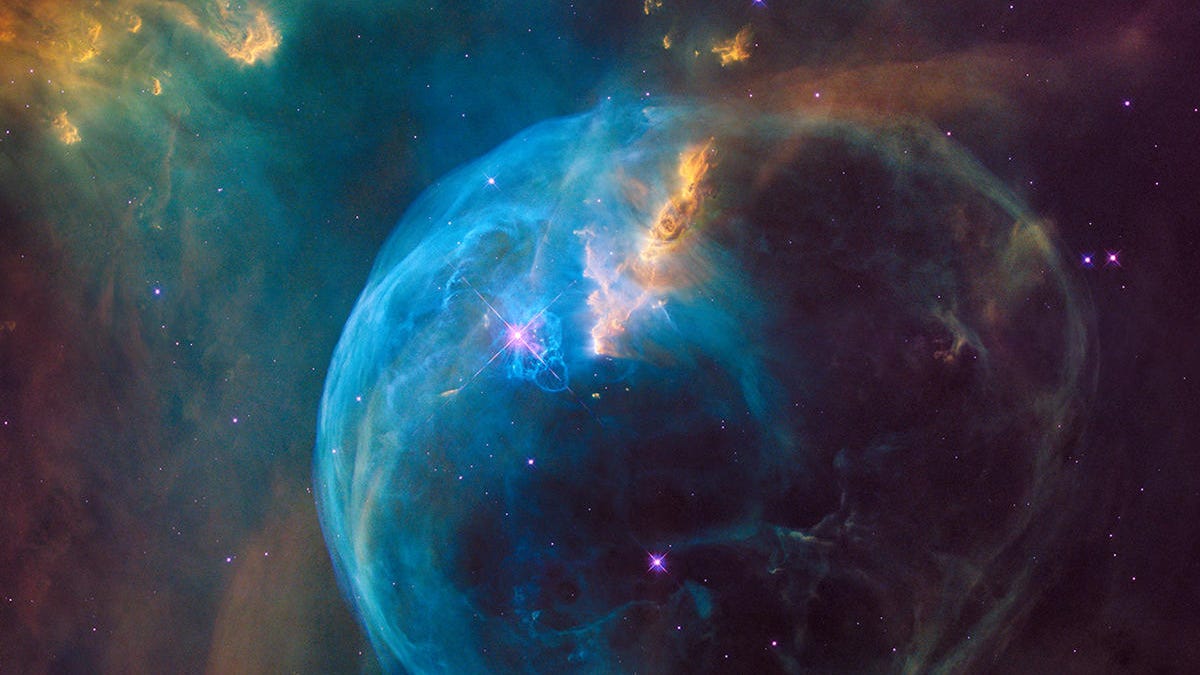We haven't found aliens because we can't see past our cosmic hot tub
Are we alone in the universe? It's hard to say because we've barely searched it at all for signs of other intelligence, a SETI pioneer says.

The Bubble Nebula, or NGC 7635.
It's a classic question known as the Fermi Paradox that remains unanswered in the 21st century. If the universe is so inconceivably huge, it should be filled with other advanced civilizations. So why have we never found even a single, definitive signal from a society beyond Earth?
The answer could be that our search for intelligent aliens is still incredibly limited, like trying to catch a fish in a vast ocean when you're only able to cast your reel in a single patch of water not much wider than your fishing rod.
"The cosmic haystack these signals could be found in is really huge," SETI pioneer Jill Tarter said during a presentation at NASA's first formal "technosignatures" workshop in Houston on Wednesday. Tarter is perhaps best known as the inspiration for Jodie Foster's character in the 1997 film Contact. The workshop represents NASA's first foray into the search for evidence of advanced alien technologies since the 1990s.
But comparing SETI with finding the proverbial needle in a haystack might not be the best way to think about it, because there could be not one, but many needles out there.
Tarter compares the search to looking for a fish, any fish, in all of Earth's oceans by examining a single drinking glass of sea water, where the oceans represent the totality of the universe and the glass of ocean water is the portion of the universe we've checked for alien signals so far.
At least that's how Tarter calculated it in a study published in 2010. During her talk this week she acknowledged new research co-authored by Penn State astronomy professor Jason Wright that updates those measurements somewhat. The paper, which will be forthcoming in the Astronomical Journal, estimates we've broadened our window on the universe with respect to searching for signs of alien intelligence, but not by much.
"Our current search completeness is extremely low, akin to having searched something like a large hot tub or small swimming pool's worth of water out of all of Earth's oceans."
So we still have much, much more searching to do, in other words.
The good news, according to Tarter, is that new telescopes and technologies like artificial intelligence are presenting new opportunities to search more of that cosmic ocean than ever before.
And, as Wright's paper concludes, you only need to search the whole ocean, er, haystack if you want to prove there are zero needles out there:
"Because technological life might spread through the Galaxy, or because technological species might arise independently in many places, we might expect there to be a great number of needles to be found."
And if that turns out to be the case, we'll finally learn how far off things like Star Trek and Star Wars really are.
Crowd Control: A crowdsourced science fiction novel written by CNET readers.
Star Wars at 40: Join us in celebrating the many ways the Force-filled sci-fi saga has impacted our lives.

